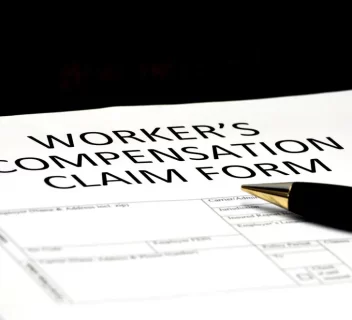Workers Compensation: How Long Does It Last? Key Insights You Need
Workers who experience injuries or illnesses related to their jobs often rely on workers’ compensation to cover their medical expenses and lost wages. However, a common question many employees have is, workers compensation how long does it last? Understanding how long does workers’ comp benefits last is crucial for planning your recovery and financial future.
Navigating a workers comp claim can be complex, involving various paperwork, medical care scheduling, and ensuring fair compensation for injuries.
In this article, we will delve into the essentials of workers’ compensation, eligibility requirements, benefit durations, and more to give you the clarity you need.
What is Workers’ Compensation?
Workers’ compensation is a form of insurance designed to provide financial and medical benefits to employees who suffer work-related injuries or illnesses. The insurance company plays a crucial role in managing workers’ compensation claims, ensuring timely reporting of injuries, and evaluating claims to provide necessary benefits. This system exists to ensure that injured workers receive necessary support without having to navigate lengthy legal battles.
Workers comp claims can be complex and vary significantly across different states, with each state having its own set of laws and procedural requirements. These claims can remain open for varying lengths of time, impacting both injured workers and the corresponding insurance implications.
Key objectives of workers’ compensation include:
Covering medical expenses
This includes surgeries, medications, rehabilitation, and any other treatments required for recovery.
Replacing lost wages
Workers who cannot return to their jobs temporarily or permanently may receive a percentage of their regular pay.
Providing vocational training
For workers who are unable to return to their original job, workers’ compensation may fund retraining for a different career.
Offering death benefits
In cases where a worker dies due to a job-related incident, their dependents may receive compensation.
Workers’ compensation operates on a no-fault basis, meaning employees are not required to prove employer negligence to receive benefits. This streamlined approach helps injured workers access the support they need more quickly. Additionally, having a structured return-to-work plan is crucial to managing a workers’ comp claim effectively, ensuring fair compensation for injuries.
Am I qualified to receive Workers’ Compensation?
Eligibility for workers’ compensation depends on several factors:
Work status
Workers’ compensation generally covers employees but not independent contractors. However, certain exceptions may apply.
Work-related injury or illness
The injury or illness must be directly connected to your job duties. For example, slipping on a wet floor at your workplace or developing a repetitive strain injury from typing.
Reporting the incident promptly
Most states have strict deadlines for reporting injuries to your employer, often within days or weeks of the incident.
Filing a claim
After notifying your employer, you must complete and submit a workers’ compensation claim form. Your employer or insurance provider will guide you through this process. Both employees and employers must adhere to specific procedural requirements when filing and managing workers’ compensation claims.
How Long Do Workers’ Compensation Benefits Last?
The duration of workers’ compensation benefits varies depending on factors such as the severity of the injury, state laws, and the type of benefits being provided. Workers’ comp claims can remain open for varying lengths of time, impacting both injured workers and insurance implications. Here’s a general breakdown:
Temporary Total Disability Benefits
These benefits are paid while you recover and are completely unable to work due to an injury that is expected to be temporary. Most states cap temporary disability payments at two to five years, although exceptions may exist for severe cases.
Permanent Partial Disability Benefits
If your injury leads to a permanent impairment but you can still work, you may receive compensation for an extended period or even for life in some states. However, some jurisdictions set time or financial limits on these payments.
Medical Benefits
Workers’ compensation typically covers medical care related to your injury or illness as long as treatment is necessary. In most cases, there is no specific time limit for these benefits.
Death Benefits
For dependents of deceased workers, benefits may last for a set number of years or until the dependents reach a certain age.
Because state laws heavily influence the duration of benefits, it’s important to check your state’s specific regulations or consult an attorney.
In some states, the nature of your injury may also impact the duration of the benefit. For example, catastrophic injuries—such as those resulting in permanent paralysis or loss of a limb—might allow for lifetime benefits. Meanwhile, injuries causing partial disability may receive compensation for a predetermined period. Temporary partial disability, where an injured employee can perform light duties, may also affect the duration and amount of benefits.
Understanding how long workers’ compensation benefits last for your situation requires a thorough review of your medical condition and your state’s legal framework. Knowing the potential timelines can help you plan your recovery and financial stability.
Maximum Medical Improvement (MMI)
MMI is a pivotal stage in the recovery process. It marks the point when a treating physician determines that no further significant improvement is expected. Reaching MMI can influence the duration of workers’ comp benefits and determine whether an injured worker transitions to long-term disability benefits or a settlement.
What are the Pros and Cons of Workers’ Compensation?
Workers’ compensation has both advantages and disadvantages that workers should consider. Workers compensation insurance is crucial for protecting both employees and employers in the event of work-related injuries, providing benefits to injured workers and their families, and ensuring legal compliance for businesses.
Pros
- Quick access to benefits: Workers receive medical and financial support without the need to prove employer fault.
- Guaranteed coverage: Most job-related injuries or illnesses are covered, regardless of how they occurred.
- Rehabilitation support: Workers’ compensation often includes vocational training to help you transition to a new role if you cannot return to your old job.
- Peace of mind: Workers’ compensation ensures a financial safety net during challenging times, reducing stress for injured employees and their families.
- Coverage for medical treatment: Seeking immediate medical treatment is crucial for proper diagnosis and care, which can impact the duration and resolution of claims and ensure insurance coverage for medical expenses.
Cons
- Limited compensation: Workers’ compensation benefits do not cover non-economic damages like pain and suffering.
- Benefit caps: States impose limits on the amount and duration of benefits, which may not fully compensate for your losses.
- Exclusivity rule: In most cases, accepting workers’ compensation means you waive the right to sue your employer for additional damages.
- Complex claims process: In some cases, claims may be denied or delayed due to disputes about the injury or eligibility, requiring legal intervention.
- Coverage limitations: Workers’ compensation coverage may have gaps that leave employees without adequate protection, potentially leading to significant financial strain.
In some situations, pursuing a third-party claim (e.g., against a contractor or equipment manufacturer) might provide better compensation. For example, if a defective machine caused your injury, you could potentially file a lawsuit against the manufacturer for additional damages. Evaluating all options with legal assistance is advisable.
How much of a Workers’ Compensation payout am I entitled to?
Workers’ comp benefits cover specific losses, including:
- Medical expenses: This includes doctor visits, surgeries, medication, physical therapy, and other related treatments.
- Temporary disability benefits: In many cases, these payments typically may replace two-thirds of your average weekly wage, up to a state-mandated maximum.
- Permanent disability benefits: Compensation amounts depend on the severity of the impairment and how it affects your earning capacity.
- Vocational training: If you cannot return to your previous job, workers’ compensation may cover the costs of training for a new occupation.
- Death benefits: Dependents of a deceased worker may receive financial support for a set duration, often based on the worker’s wages.
Each state has unique rules regarding the calculation of benefits, so consulting a legal expert is essential to understand your entitlement. It’s also important to note that the payout process can be subject to negotiations, especially if disputes arise between you and the insurance provider.
How much does a Workers’ Compensation attorney cost to hire?
Most workers’ compensation attorneys work on a contingency fee basis. This means they only get paid if you win your case or secure a settlement. The typical fee structure is as follows:
- Percentage of recovery: Attorneys usually take a percentage (often 15-25%) of the benefits or settlement awarded.
- State-regulated fees: Many states cap the percentage an attorney can charge, ensuring that legal fees remain reasonable.
- No upfront costs: Since fees are contingent on winning, you don’t pay anything out of pocket to hire an attorney.
While attorneys work on a contingency fee basis, some costs, such as court fees, may still apply. Hiring an experienced attorney can help maximize the benefits you may be eligible for. An attorney can also help negotiate with insurers, gather evidence, and represent you in hearings or appeals.
Contact 1-800-THE-LAW2 for a Free Consultation
Navigating the workers’ compensation system can be overwhelming, especially when you’re recovering from an injury. Consulting with a knowledgeable attorney can help you seek the benefits you may be entitled to.
At 1-800-THE-LAW2, we connect injured workers with experienced legal professionals in our network who understand the complexities of workers’ compensation laws. Call us today for a free consultation and take the first step toward securing the support you need.
Understanding workers’ compensation how long does it last and the related nuances is essential for making informed decisions. Whether you’re seeking clarity on your eligibility, the duration of benefits, or legal representation, this guide provides a foundation to help you move forward confidently.




